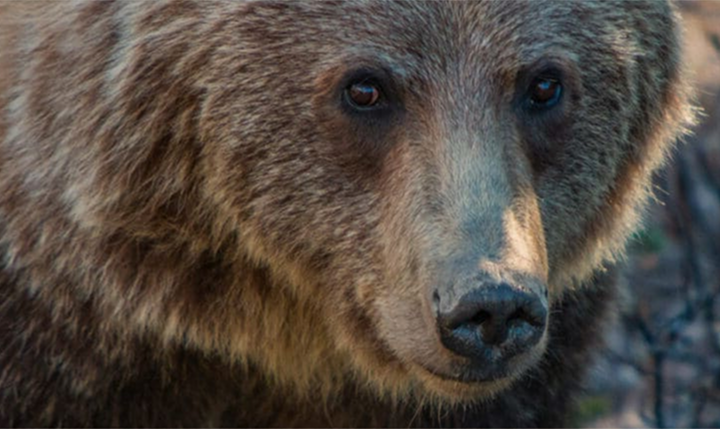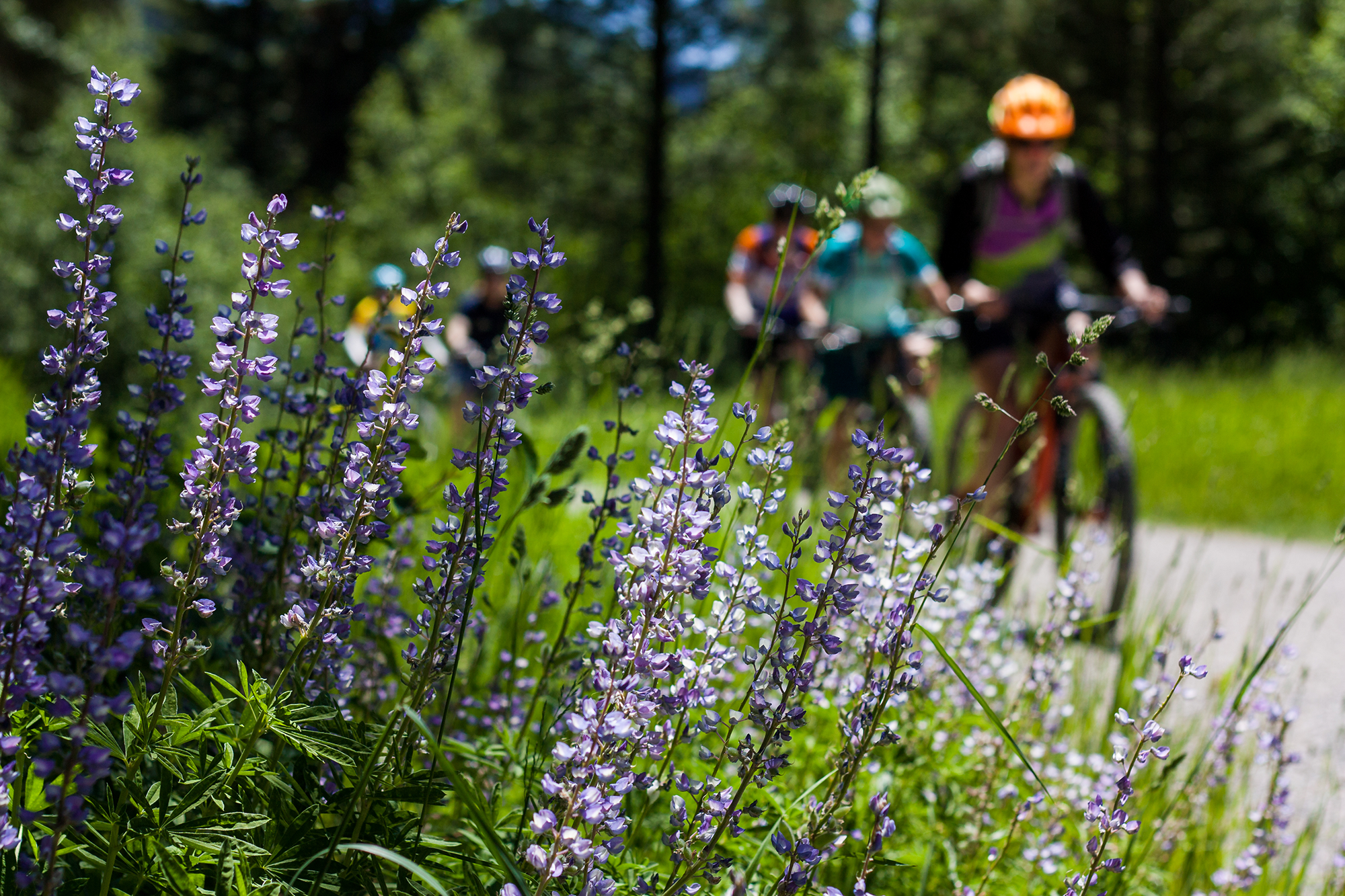What does land-based reconciliation look like in our region, and how do we get there, together?
Yellowstone to Yukon Conservation Initiative has been hosting online workshops to learn and discuss how Indigenous and non-Indigenous people and organizations can work together to create and sustain prosperous communities and healthy landscapes across the Yellowstone to Yukon region.
The ethical space series started in late 2020, with a series of workshops covering a range of topics, including Indigenous authority, revitalizing Indigenous law, place based stories, partnerships for caribou recovery, intractable conflict, strategic regional competition, and transformative approaches to land based reconciliation.
If you have ideas for future sessions, or resources to share, please let us know by emailing Nadine Raynolds at nadine (at) y2y (dot) net.
“Reconciliation between Aboriginal and non-Aboriginal Canadians, from an Aboriginal perspective, also requires reconciliation with the natural world. If human beings resolve problems between themselves but continue to destroy the natural world, then reconciliation remains incomplete. This is a perspective that we as Commissioners have repeatedly heard: that reconciliation will never occur unless we are also reconciled with the earth.”
Truth and Reconciliation Commission of Canada
Backgrounder and primer
Gwen Bridge shares an introduction to Ethical Space that serves as the foundation for the workshops and information that follows. This is perfect for those new to the concept or those who would like a refresher.
Deepen your understanding of the Indigenous worldview. Dive into Ethical Space and the roots of conflict within the hierarchical legislative frameworks of Indigenous and colonial societies and the challenges of understanding the legislative roles. The exercise of reconciliation of legislative frameworks requires the decolonization of Western structures and the indigenization of “Western” law, and the implementation of Indigenous law. Explore Ethical Space is as a place where we take responsibility for the creation of something new, and applying Indigenous law and decision-making to shape a new societal concept.
Gwen is an environmental scientist, conservation advocate and Indigenous advisor to Yellowstone to Yukon Conservation Initiative.
Past workshops:
Bringing the Salmon Home: The Columbia River Salmon Reintroduction Initiative
A recording of a panel discussion on Nov. 22, 2022 about the Bringing the Salmon Home initiative, including presentations by Indigenous Knowledge Counsel members and Youth Salmon Warriors: Valerie Michel, Troy Hunter, Fred Fortier, Chad Eneas, Martina Escutin and Jade Montgomery-Waardenburg.
Buffalo Treaty: Creating and Enacting an Ethical Space from the Mountains to the Plains
A recording of a panel discussion on Oct. 26, 2022 with founding directors of the International Buffalo Relations Institute: Dr. Leroy Little Bear, Dr. Tasha Hubbard and Kyra Northwest, discussing the role Buffalo Consciousness, Buffalo Rematriation and ecological and cultural renewal play in North America.
Equity in Land-Use Planning – Ethical Spaces and Upholding Responsibility
A recording of the Y2Y-hosted ethical space workshop “Equity in Land-Use Planning: Insights from Love-based Practices and Ethical Space” on June 23, 2022. We welcomed speakers Elaine Alec from the Syilx Nation and Secwepemc Nation, and partner in Alderhill Planning Inc., and Moe Nadeau, researcher and master’s student at Simon Fraser University.
Dene K’éh Kusān – Indigenous Led Conservation and the Kaska Dena’s Vision for the Stewardship of Dena Kayeh
Hosted on March 2, 2022, Gillian Staveley, the Director of Land Stewardship and Culture of the Dena Kayeh Institute, shared images, stories, and presented on the process of developing an Indigenous Protected and Conserved Area in Northern B.C.
Getting Ready: Ethical Space, Indigenous Authority, and Reconciliation, facilitated by Gwen Bridge
The RELAW Program: Revitalizing Indigenous Law for Land, Air and Water with Jessica Clogg, Rayanna Seymour-Hourie, and Shelby Lindley.
Indigenous Story and Law with Lauren Terbasket
Partnerships for Caribou Recovery: Protecting the Sacred Twin Sisters Area
A Ktunaxa Ethical Space Context and Consideration with Michele Sam
Additional reading and resources
The social, cultural, legal and policy landscape regarding the relationships between Indigenous and non-Indigenous people in Canada is evolving rapidly. We are all called to explore what reconciliation means to us individually and for our organizations, communities, economies, laws and governance structures.
Here are some resources that may help. If you have additional resources, readings or links to include, please email Nadine Raynolds at nadine (at) y2y (dot) net.
- The UN Declaration on the Rights of Indigenous Peoples (UNDRIP), A Quick Reference
- Full UNDRIP resolution, 2007
- Truth and Reconciliation Commission of Canada: Calls to Action, 2015
- We Rise Together: Achieving Pathway to Canada Target 1 through the creation of Indigenous Protected and Conserved Areas in the spirit and practice of reconciliation, The Indigenous Circle of Experts’ Report and Recommendations, March 2018
- Canada’s Conservation Vision: A Report of the National Advisory Panel, March 2018
- B.C. Declaration on the Rights of Indigenous Peoples Act (DRIPA), November 2019
- Good for the Land, Good for the People, Good for the Economy: A Call to Action to Recognize, Support and Implement Indigenous Protected and Conserved Areas and Indigenous Guardians in British Columbia, January 2020
- Memorial to Sir Wilfred Laurier, Premier of the Dominion of Canada from the Chiefs of the Shuswap, Okanagan and Couteau Tribes of British Columbia BC, 1910
- A Primer on Governance for Protected and Conserved Areas, International Union for Conservation of Nature, 2014
- Indigenous Law Research Unit, University of Victoria
- RELAW: Revitalizing Indigenous Law for land, air and water, West Coast Environmental Law (documents and video)
- Constructing Indigeneity: Syilx Okanagan Oraliture and Tmixwcentrism by Jeanette Armstrong, 2012
- Conservation Through Reconciliation Partnership, University of Guelph
- Contextualizing Approaches to Indigenous Peoples’ Experiences of Intractable Conflict, Michele A Sam, 2019
- Indigenous Canada: Online course from the University of Alberta that explores the different histories and contemporary perspectives of Indigenous peoples living in Canada
- The Blanket Exercise: The history of Canada we rarely learn
- The Ethical Space of Engagement by Willie Ermine
- Voices of Understanding: Looking Through the Window, Examining decision-making models and creating ethical spaces where Indigenous communities and the AER can work together, Alberta Energy Regulator, November 2017
- Reconciling Ways of Knowing: Indigenous Law and Science Forum
- When Voices Matter (video) discusses parallels between western and Indigenous decision-making models
- Operationalizing Ethical Space in IPCAs and Crown Protected and Conserved Areas (pdf) by Danika Littlechild and Colin Sutherland
- Towards knowledge co-existence in environmental regulation (pdf) from B.C. First Nations Energy and Mining Council, November 2021
- Exploring Ethical Space for Land Use Planning in the Upper Columbia, British Columbia, 2022 by Maureen Nadeau. (Research brief) (Full report)
- 150 Acts of Reconciliation
- 10 Ways to be a Genuine Ally to Indigenous Communities, Amnesty International
- Bringing the Salmon Home, Annual Report 2019-20, The Columbia River Salmon Reintroduction Initiative of the Syilx Nation, Ktunaxa Nation, Secwepemc Nation, Government of Canada, Government of British Columbia
- Intergovernmental partnership agreement: central group Southern Mountain Caribou, Government of Canada
- We Are Bringing Them Back, film about mountain caribou by Nikanese Wah Tzee Stewardship Society
- Ktunaxa Creation Story
- The One About Coyote and the Mirrors
- Metaphysics: Intersecting Western and Native Ideas with Leroy Little Bear
Thank you to our presenters as well as event sponsor for their support:



